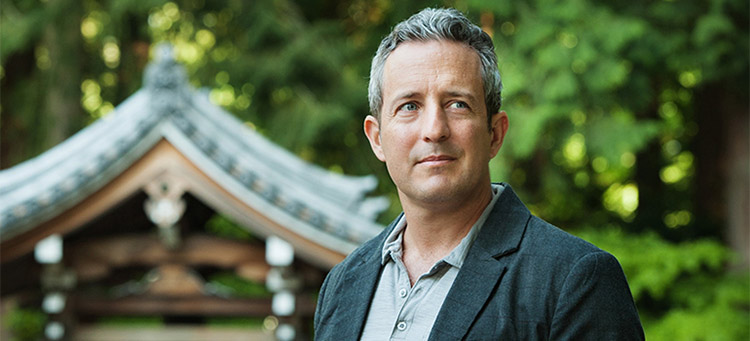

“I was always interested in Taoism,” Professor Edward Slingerland says, “and now that I’m a scholar of this stuff, I find a lot of the students who take classes from me have similar motivations to the ones I once had.”
Slingerland, parallel to many of his students, was motivated to study Taoism by its influence on pop culture icons, like the celebrated 1950s and 1960s American writers of the “Beat Generation” troupe. Having studied it formally, he’s found that his initial motivation was somewhat misdirected as these influences are basically mistaken about Taoism and Zen.
“One of the things that I try to do is break them of what they’ve learned from these popular sources, because they’re often really inaccurate.”
Slingerland, the Canada Research Chair in Chinese Thought and Embodied Cognition, is a specialist in a period of history called Warring States China, a turbulent time spanning roughly 500 B.C. to 221 B.C. when the old feudal order of China was disintegrating.
During that time, even as numerous states fought each other for supremacy, divided China was rife with all kinds of ideas, including those of religious thinkers Confucius, Laozi, and Mozi.
“When China gets unified, I find that things get kind of boring,” Slingerland says.
Confucius, he explains, understood the reign of chaos in ancient China as a result of letting ritual slide. If society would only return to the discipline of daily rituals, he taught, order would return.
Slingerland published an annotated translation of Confucius’ Analects, and says the experience taught him that there is no shortage of points of contact between the sage’s epoch and ours.
“There’s this one passage where he’s complaining about the music of Zheng and, as far as we can tell, it probably sounded a lot like rock music,” says Slingerland, who adds that the passage describes music with a catchy beat that makes young women and men dance together. Confucius, however, insisted people ought to listen to the more restrained classical music.
Fluent in six languages, Slingerland recently finished a forthcoming book called What Science Offers the Humanities: Integrating Body and Culture, something he terms his “anti-postmodernism book,” but also a treatise on the status of the humanities and where they need to go in a world of rapid change.
Simply stated, Slingerland believes that between postmodernism and the mind-body dualism espoused by Cartesian objectivism there is a third way to approach philosophy, known as “embodied cognition.”
“The ‘embodied cognition’ approach to the study of culture simply argues that human cognition (how we perceive, think, etc.) is inextricably tied up with our embodiment,” Slingerland notes.
“The actual makeup and limitations of our body-minds and the way they interact with the physical environment has much to do with how we think and what we can think.”


